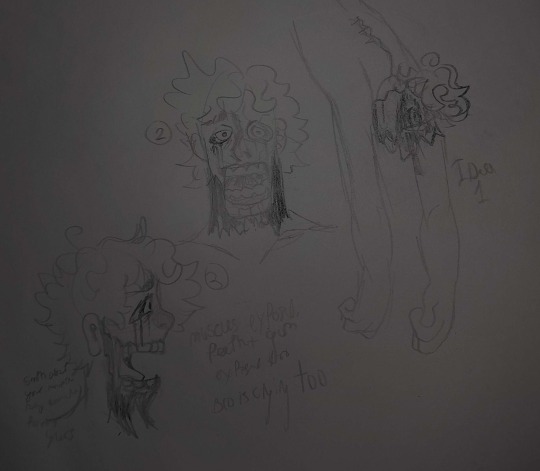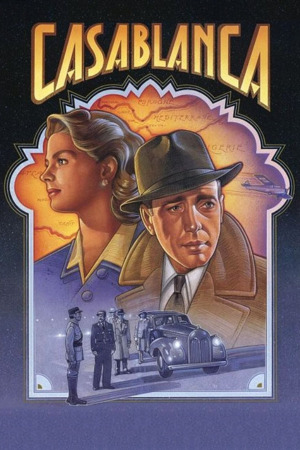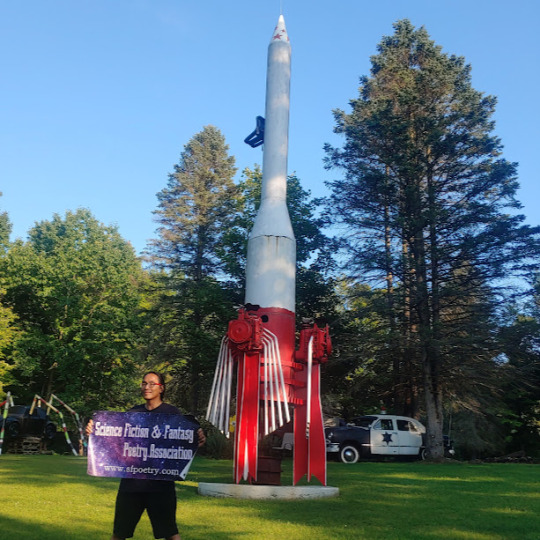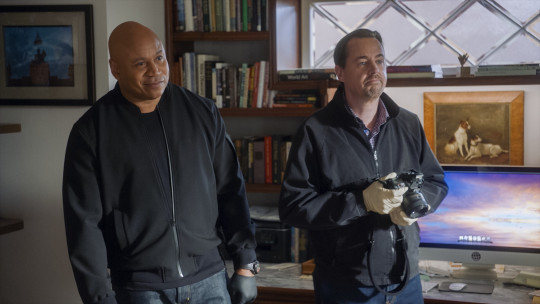#J. G. Murray
Explore tagged Tumblr posts
Note
Howdy Hedone! I love Madison! I saw you associate her with lions and now I have to ask: what key animal do you associate with each of your s/is and why :)?
Santiago @tex-treasures
Hello Skipper! Thank you so much for sending this in!!
For Merope its dogs and bats. When I write for her I often use dog imagery, there's something that I like about the connection. It could also be because dogs are sacred animals for Hecate, greek goddess of magic.

For Marya I always associate river snakes for her. Its one of her nicknames. All the daughter's of Oberon are called "the sand snakes" but with Marya having a water theme I thought river snakes would be more appropriate for her to go by "River Snakes".

For Mary I associate black cats with her. While often seen as bad luck, the celts associated black cats with fairies, supernatural powers, and wishes. Which fits Mary to a tee. I am half thinking about making it so that she can transform into a cat like Jareth can transform into an owl.

For Mallory I associate mice with her. Something small that can get in and out of places both old and new.

Like with Merope, for Mayu I associate dogs with her. She half dog demon so its easier to see the link there.

For Megette, as predictable as it sounds, Dragons. Her dragon, Grey Ghost is such a big staple of who she is, it's what leads her to position that she's in, the people she loves.
(You might ask why Megette is getting two pictures and everyone else is only getting one. The one on the right is Megette Seastar, the daughter of Mysaria and Daemon, and the one of the left is Megette Royce, the daughter of Rhea Royce and Daemon.)


As I had said before I associate lions for Madison. I was re-reading Circe by Madeline and was making a " PJO Daughter of Circe" moodboard when I was creating her so I think that's where that came from.

For Melosa I haven't put much thought into this but if I had to say, maybe some sort of small fish.

For Meave I associate her with birds, specifically sparrows. They have such a lovely song when they sing and symbolise the little blessings in life. I can see her being that in Touya's life.

#hedone talks#Merope Constantine Addams#Marya Sand#Maeve Mackenzie#Melosa#Megette Seastar#Megette Royce#Mayu#Mallory Florence Beatle#Mary G. Murray#Madison J. Montgomery#self insert#self insert x canon#self insert community#self shipping#self shipper#selfshipper#self ship community#self shipping community#selfship#selfship community#self ship#selfshipp#self ships#fo community#f/o community#oc x canon#si x canon#canon x oc#canon x self insert
4 notes
·
View notes
Text

Guys i think there’s something wrong with him.
[drew these before my style changed.. maybe ill keep this as an alt style or something]
#adam murray#not g/t#doodle#traditonal#body horror#mandela catalogue#tmc spoilers#the mandela catalogue spoilers#Fun fact i had like 1-2 dreams about alt Adam haunting me#Guys should i due alex ? /j
22 notes
·
View notes
Text
This seems fun to do! I have a few new si’s, you can find all my si over here
ask game: self insert lore
because i love developing my self inserts and their role within canon i figured there should be an ask game for it!
1. what are the basics of your self insert? name, date of birth, height, etc.?
2. when in canon does your self insert come in? do you have a scene in mind for your entrance?
3. how do the other characters generally feel about your self insert?
4. would you be considered a main character, side character, villain, or something else?
5. does your self insert have any special powers or abilities?
6. does your self insert have any pets?
7. would any other characters (besides your f/o) have a crush on your self insert?
8. what is your self insert’s orientation?
9. who are your self insert’s closest friends?
10. how do the other characters feel about your self insert and f/o’s relationship?
11. what kind of outfit(s) does your self insert wear?
12. how would the fandom view your character?
13. does your self insert have any information about their family?
14. what hobbies does your self insert have?
15. how does your self insert play a role in the plot of the story? do they help directly defeat the villain, support the heroes, etc.?
16. freebie! name a fact about your self insert you want everyone to know.
#Hedone talks#Merope Constantine Addams#Marya Sand#Mary G. Murray#Mallory Florence Beatle#Mayu#Megette Royce#Madison J. Montgomery#Self Insert#ask game#self ship ask game
2K notes
·
View notes
Text
Casablanca

🇺🇸 | Jan 23, 1943
directed by Michael Curtiz
screenplay by Julius J. Epstein, Philip G. Epstein, Howard Koch
theatre play by Murray Burnett, Joan Alison
produced by Warner Bros. Pictures
starring Humphrey Bogart, Ingrid Bergman, Paul Henreid, Claude Rains, Conrad Veidt
1h42 | Drama, Romance
𐄂 not watched
Browse through collections
American Movies | director Michael Curtiz | writer Julius J. Epstein | writer Philip G. Epstein | writer Howard Koch | writer Murray Burnett | writer Joan Alison | studio Warner Bros. Pictures | actor Humphrey Bogart | actress Ingrid Bergman | actor Paul Henreid | actor Claude Rains | actor Conrad Veidt
Browse through genres
Drama | Romance
Links
trakt.tv | letterboxd
#American Movies#Michael Curtiz#Julius J. Epstein#Philip G. Epstein#Howard Koch#Murray Burnett#Joan Alison#Warner Bros. Pictures#Humphrey Bogart#Ingrid Bergman#Paul Henreid#Claude Rains#Conrad Veidt#Drama#Romance
0 notes
Text
See pinned post for the full bracket!
#best best adapted screenplay tournament#oscars#best adapted screenplay#academy awards#amadeus#peter shaffer#casablanca#philip g. epstein#julius j. epstein#howard koch#joan alison#murray burnett#poll#bracket tournament#polls#brackets
1 note
·
View note
Text

The Science Fiction and Fantasy Poetry Association recently released the poems that made it to the finalist stage for consideration for the 2024 Rhysling Awards for Short and Long Speculative Poems of the year. Congratulations to all of the nominees! This will be the 46th year these awards have been conferred!
Short Poems (50 finalists)
Attn: Prime Real Estate Opportunity!, Emily Ruth Verona, Under Her Eye: A Women in Horror Poetry Collection Volume II
The Beauty of Monsters, Angela Liu, Small Wonders 1
The Blight of Kezia, Patricia Gomes, HWA Poetry Showcase X
The Day We All Died, A Little, Lisa Timpf, Radon 5
Deadweight, Jack Cooper, Propel 7
Dear Mars, Susan L. Lin, The Sprawl Mag 1.2
Dispatches from the Dragon's Den, Mary Soon Lee, Star*Line 46.2
Dr. Jekyll, West Ambrose, Thin Veil Press December
First Eclipse: Chang-O and the Jade Hare, Emily Jiang, Uncanny 53
Five of Cups Considers Forgiveness, Ali Trotta, The Deadlands 31
Gods of the Garden, Steven Withrow, Spectral Realms 19
The Goth Girls' Gun Gang, Marisca Pichette, The Dread Machine 3.2
Guiding Star, Tim Jones, Remains to be Told: Dark Tales of Aotearoa, ed. Lee Murray (Clan Destine Press)
Hallucinations Gifted to Me by Heatstroke, Morgan L. Ventura, Banshee 15
hemiplegic migraine as willing human sacrifice, Ennis Rook Bashe, Eternal Haunted Summer Winter Solstice
Hi! I am your Cortical Update!, Mahaila Smith, Star*Line 46.3
How to Make the Animal Perfect?, Linda D. Addison, Weird Tales 100
I Dreamt They Cast a Trans Girl to Give Birth to the Demon, Jennessa Hester, HAD October
Invasive, Marcie Lynn Tentchoff, Polar Starlight 9
kan-da-ka, Nadaa Hussein, Apparition Lit 23
Language as a Form of Breath, Angel Leal, Apparition Lit October
The Lantern of September, Scott Couturier, Spectral Realms 19
Let Us Dream, Myna Chang, Small Wonders 3
The Magician's Foundling, Angel Leal, Heartlines Spec 2
The Man with the Stone Flute, Joshua St. Claire, Abyss & Apex 87
Mass-Market Affair, Casey Aimer, Star*Line 46.4
Mom's Surprise, Francis W. Alexander, Tales from the Moonlit Path June
A Murder of Crows, Alicia Hilton, Ice Queen 11
No One Now Remembers, Geoffrey Landis, Fantasy and Science Fiction Nov./Dec.
orion conquers the sky, Maria Zoccula, On Spec 33.2
Pines in the Wind, Karen Greenbaum-Maya, The Beautiful Leaves (Bamboo Dart Press)
The Poet Responds to an Invitation from the AI on the Moon, T.D. Walker, Radon Journal 5
A Prayer for the Surviving, Marisca Pichette, Haven Speculative 9
Pre-Nuptial, F. J. Bergmann, The Vampiricon (Mind's Eye Publications)
The Problem of Pain, Anna Cates, Eye on the Telescope 49
The Return of the Sauceress, F. J. Bergmann, The Flying Saucer Poetry Review February
Sea Change, David C. Kopaska-Merkel and Ann K. Schwader, Scifaikuest May
Seed of Power, Linda D. Addison, The Book of Witches ed. Jonathan Strahan (Harper Collins)
Sleeping Beauties, Carina Bissett, HWA Poetry Showcase X
Solar Punks, J. D. Harlock, The Dread Machine 3.1
Song of the Last Hour, Samuel A. Betiku, The Deadlands 22
Sphinx, Mary Soon Lee, Asimov's September/October
Storm Watchers (a drabbun), Terrie Leigh Relf, Space & Time
Sunflower Astronaut, Charlie Espinosa, Strange Horizons July
Three Hearts as One, G. O. Clark, Asimov's May/June
Troy, Carolyn Clink, Polar Starlight 12
Twenty-Fifth Wedding Anniversary, John Grey, Medusa's Kitchen September
Under World, Jacqueline West, Carmina Magazine September
Walking in the Starry World, John Philip Johnson, Orion's Belt May
Whispers in Ink, Angela Yuriko Smith, Whispers from Beyond (Crystal Lake Publishing)
Long Poems (25 finalists)
Archivist of a Lost World, Gerri Leen, Eccentric Orbits 4
As the witch burns, Marisca Pichette, Fantasy 87
Brigid the Poet, Adele Gardner, Eternal Haunted Summer Summer Solstice
Coding a Demi-griot (An Olivian Measure), Armoni “Monihymn” Boone, Fiyah 26
Cradling Fish, Laura Ma, Strange Horizons May
Dream Visions, Melissa Ridley Elmes, Eccentric Orbits 4
Eight Dwarfs on Planet X, Avra Margariti, Radon Journal 3
The Giants of Kandahar, Anna Cates, Abyss & Apex 88
How to Haunt a Northern Lake, Lora Gray, Uncanny 55
Impostor Syndrome, Robert Borski, Dreams and Nightmares 124
The Incessant Rain, Rhiannon Owens, Evermore 3
Interrogation About A Monster During Sleep Paralysis, Angela Liu, Strange Horizons November
Little Brown Changeling, Lauren Scharhag, Aphelion 283
A Mere Million Miles from Earth, John C. Mannone, Altered Reality April
Pilot, Akua Lezli Hope, Black Joy Unbound eds. Stephanie Andrea Allen & Lauren Cherelle (BLF Press)
Protocol, Jamie Simpher, Small Wonders 5
Sleep Dragon, Herb Kauderer, The Book of Sleep (Written Image Press)
Slow Dreaming, Herb Kauderer, The Book of Sleep (Written Image Press)
St. Sebastian Goes To Confession, West Ambrose, Mouthfeel 1
Value Measure, Joseph Halden and Rhonda Parrish, Dreams and Nightmares 125
A Weather of My Own Making, Nnadi Samuel, Silver Blade 56
Welcoming the New Girl, Beth Cato, Penumbric October
What You Find at the Center, Elizabeth R McClellan, Haven Spec Magazine 12
The Witch Makes Her To-Do List, Theodora Goss, Uncanny 50
The Year It Changed, David C. Kopaska-Merkel, Star*Line 46.4
Voting for the Rhysling Award begins July 1; a link to the ballot will be sent with the Rhysling Anthology, as well as with the July issue of Star*Line. More information on the Rhysling Award can be found here.
757 notes
·
View notes
Text
A video of the full panel is available at the link, including an edited transcript. Some quotes:
A decade ago, in a very different San Francisco and a very different television landscape, Patrick Murray and his friends first stumbled onto HBO — literally, the pilot starts with Jonathan Groff ineptly cruising in a public park. Looking was a low-key, intentionally under-glamorous depiction of the lives of a few gay male friends played by Groff, future White Lotus employee Murray Bartlett, and Frankie J. Alvarez, as well as their token straight-woman-friend Doris (Lauren Weedman) and Patrick’s pair of love interests, played by Raúl Castillo and Russell Tovey. Created by Michael Lannan with the close involvement of director Andrew Haigh (of All of Us Strangers), Looking intentionally tacked away from the soap-operatics of gay dramas like the American Queer As Folk while still wrestling with the hot topics of gay life during the second Obama administration: PrEP, Grindr, marriage equality. In its two-season run plus a wrap-up film, the show was never a ratings smash — its time slot, right next to Girls, may have led some audiences to expect satire where Looking bent toward sweet earnestness — though it became the subject of furious discussion on social media, perhaps also a novel dynamic at the time. Looking lives on as a cult favorite, discovered and revisited by new fans online, and it remains a beloved project for its cast and crew.
Jonathan Groff: I auditioned in L.A. I had seen Weekend, and I was a puddle after that movie was over. I was so blown away and had never seen a gay movie or show that felt so relatable. And then when I heard the director of that was directing this pilot, I got really excited. It was the scene with Richie when he’s hitting on Patrick on the train in the pilot. I remember blushing for real, because until that moment in that room, I had never actually played “gay” in that way before, and it was such a confronting, scary, exciting experience. I was like, Whoa. I felt actually hot.
Frankie Alvarez: That’s because you weren’t playing, you were revealing.
J.G.: Yeah, exactly! I kind of left on a high from that audition. It felt a little scary to … It’s one thing to be out, but then it’s another thing to, like, douche on-camera. [Laughs] And it’s like, “Wow, I guess if I do this show, it’s really like G-A-Y across my forehead.” At that time, there was this notion that if you were gay and you played gay, that was all that you were going to be able to do. But I felt it so deeply that I ended up not caring as much about that and wanting to play the role.
F.A.: That reminds me of a story. When you came out to your parents, you told your mom, “I’m never gonna be the grand marshal at the Gay Pride Parade.”
J.G.: And then we were in the Pride Parade together! I came out in 2009, and by 2013, we were at the front of the parade!
John Hoffman: …That whole first season was magic. Michael and Andrew were so open and kind and generous. And then I made Jonathan douche! I wanted everyone to get naked more! I was the one in the room going, “Guys, we need more people watching, so everybody has to be naked a lot more and having more sex!”
Lauren Weedman: If you’ve got an ass, get a fork! We’re eating!
Michael Lannan: Well, when I was rewatching it recently, I was like, “Man, there’s a lot of desire and kissing and sex!” I was like, “Oh my God, we did that!”
J.H.: Everywhere I could! Although, I later became friends with Shirley MacLaine, who’s now 90-something. I got her to watch Looking, and she said, “That is quite a show. I really enjoyed it. One note — too much kissing.” [Laughs]
L.W.: No kissing, just fucking. Is that the show’s point?
F.A.: Straight to the bottom-ing!
In an oral history about the show, one of the things that came up, alongside John being the one who really wanted douching onscreen, was how much the characters started to mold around the actors. I think one of you said, “We didn’t want to tell too much to Michael and Andrew because it might just appear onscreen.” Did you feel the sense of these characters becoming expressions of yourselves?
J.G.: To me, almost to an embarrassing point. I was figuring it out as I went along and offering up vulnerable truths. I remember being in a diner with Andrew, and he was like, “Tell me about your last breakup” and then writing down in the notes for the fight for me and Kevin at the end of the season, where we’re moving in with each other. And then I got to act that out! And the boyfriend who it was kind of about was like, “Wow, okay, so … did you tell them about it?” It was a great gift. For the actors to offer up tidbits and whatever, and then to have the writers and the directors make it artfully a part of the story, it was incredible. It was like actual therapy.
L.W.: I remember we were at the Paley Center and people were getting up and going, “I don’t see myself represented!” I thought it was beautiful, because it mattered! There’s one little morsel out there of some show that maybe you have a chance to see yourself, and people are like, “I want to be seen on this!” Of course, I’m not the writer. Much worse to be the writer. [Laughs] The reaction — it felt like it really mattered.
J.G.: I was shocked to see our gentleness attacked in such an aggressive way by what people were typing. It made me, what you were saying, Lauren, feel like, Wow, I guess this is way more meaningful than I ever anticipated. That people are actually upset and angry and furious and bored, or whatever it was they were feeling that they felt they had to kind of shout it from the rooftops. It’s a testament to the point of view of Michael and Andrew that they held fast to what they wanted to do. They heard criticism and they applied it, but they didn’t change what the core of the show was. And I think that’s why we’re here, because you had such a specific point of view. It’s such a lesson in digging in and connecting to your truth, and not letting negative noise affect that. But it was so hard for you guys! I remember it was coming from every angle.
Do you have memories of favorite places you got to film in San Francisco? Especially in that moment in time, because that city has changed so much.
M.L.: We filmed Patrick and Richie dancing at the Stud, and they kiss at the exact spot where I had my first kiss. It was crazy and beautiful. When that happened, I was like, “Wow, this really is a simulation.”
J.G.: That’s the one that came to my mind, too, because I remember you being there, and I remember us dancing. It was so hot, by the way. Super-hot.
M.L.: Temperature-wise?
J.G.: No, sexual tension! [Laughs] It was in this cool gay bar in San Francisco, and I remember you saying to the director of that episode, “Please push the camera in,” because it was a faraway shot. It was like your heart and your soul knew that we gotta go in on this. I remember feeling that and feeling you and really feeling like, “Oh, wow, I’m inside of somebody’s brain and heart right now, and I’m with this guy.” It felt like an artistic, transcendent moment. It was such a special thing to be inside of your memory of your first kiss. You were channeling something. The storytelling thing was happening.
20 notes
·
View notes
Text










🌈 Queer Books Coming Out in May 2024 🌈
🌈 Good morning, my bookish bats! Struggling to keep up with all the amazing queer books coming out this month? Here are a FEW of the stunning, diverse queer books you can add to your TBR before the year is over. Remember to #readqueerallyear! Happy reading!
[ Release dates may have changed. ]
❤️ Farzana's Spite - Felix Graves 🧡 Archangels of Funk - Andrea Hairston 💛 How It Works Out - Myriam Lacroix 💚 Queer History A to Z - Robin Stevenson, Vivian Rosas 💙 Queerceañera - Alex Crespo 💜 Second Night Stand - Karelia Stetz-Waters, Fay Stetz-Waters ❤️ You Can Call Me Cooper - Cali Kitsu 🧡 Gooseberry - Robin Gow 💛 Grand Slam Romance - Ollie Hicks, Emma Oosterhous 💙The Witches of Silverlake - Simon Curtis, Stephanie Son 💜 Drawn to the Enemy - Barbara Winkes 🌈 The Truth of Our Past - Heather Leighson
❤️ Infaust - T.D. Cloud, Ambi Sun 🧡 Garner for Gold - Catherine Labadie 💛 The Z Word - Lindsay King-Miller 💚 Snake Charming - Genevieve McCluer 💙 The 7-10 Split - Karmen Lee 💜 Loving Jemima - Sienna Waters ❤️ The Potion Gardener - Arden Powell 🧡 A Swift and Sudden Exit - Nico Vincenty 💛 The Worst Ronin - Maggie Tokuda-Hall, Faith Schaffer 💙 Murray Out of Water -Taylor Tracy 💜 The Guncle Abroad - Steven Rowley 🌈 The Weight of What Was - Pip Landers-Letts
❤️ The Amazing Alpha Tau Pledge Project - Lisa Henry, Sarah Honey 🧡 I Met Death & Sex Through My Friend, Tom Meuley - Thom Vernon 💛 Malicia - Steven dos Santos 💚 The Sins on Their Bones - Laura R. Samotin 💙 SLUTS: Anthology - Michelle Tea 💜 You Should Be So Lucky - Cat Sebastian ❤️ Death's Country - R.M. Romero 🧡 Cinema Love - Jiaming Tang 💛 The Brides of High Hill - Nghi Vo 💙 Emma - Jenna Kent 💜 Wish We Were There - Lionel Hart 🌈 A Troublemaker in Her Eyes - Genta Sebastian
❤️ I Make Envy on Your Disco - Eric Schnall 🧡 Lavash at First Sight - Taleen Voskuni 💛 Queer Power Couples - Hannah Murphy Winter, Billie Winter 💚 In Repair - A.L. Graziadei 💙 A Heart Divided - Angie Williams 💜 Long After We Are Gone - Terah Shelton Harris ❤️ The Queen of Steeplechase Park - David Ciminello 🧡 Lunar Boy - Jes Wibowo, Cin Wibowo 💛 Hot Boy Summer - Joe Jiménez 💙 Sunhead - Alex Assan 💜 The Summer Love Strategy - Ray Stoeve 🌈 Into the Mouth of the Wolf - Erin Gough
❤️ The Girl in Question - Tess Sharpe 🧡 The Lost Erwain - Mariah Stillbrook 💛 Starfire - Naomi Hughes 💚 Adrift - Sam Ledel 💙 Shanghai Murder - Jessie Chandler 💜 April May June July - Alison B. Hart ❤️ A Bone in His Teeth - Kellen Graves 🧡 Cabin Fever - Tagan Shepard 💛 Don't Be a Drag - Skye Quinlan 💙 The Ride of Her Life - Jennifer Dugan 💜 The Redemption of Daya Keane - Gia Gordon 🌈 Nearlywed - Nicolas DiDomizio
❤️ The Sunforge - Sascha Stronach 🧡 The End of Time - Trudie Skies 💛 Silent Ones - Melissa Polk 💚 Prime Time Travelers - Neil Laird 💙 My Darling Dreadful Thing - Johanna van Veen 💜 The Honey Witch - Sydney J. Shields ❤️ Spitting Gold - Carmella Lowkis 🧡 Last Chance - Claire Highton-Stevenson 💛 Road Home - Rex Ogle 💙 Only for Convenience - Shannon O'Connor 💜 Linus and Etta Could Use a Win - Caroline Huntoon 🌈 Finding Molly Parsons - Alyson Root
❤️ Breathe: Journeys to Healthy Binding - Maia Kobabe, Dr. Sarah Peitzmeier 🧡 See You Next Month - Jamey Moody 💛 Until You Say My Name - Tatum Schroeder 💚 Disembark - Jen Currin 💙 True Love and Other Impossible Odds - Christina Li 💜 Flyboy - Kasey LeBlanc ❤️ Thirsty - Jas Hammonds 🧡 Hands Off - N. Slater 💛 Flooded Secrets - Claudie Arseneault 💙 The Deer and the Dragon - Piper C.J. 💜 To Be Loved - Frank G. Anderson 🌈 Snowblooded - Emma Sterner-Radley
❤️ Blood Remains - Cathy Pegau 🧡 Blood on the Tide - Katee Robert 💛 We Were the Universe - Kimberly King Parsons 💚 Loyalty - E.J. Noyes 💙 Spirits and Sirens - Kelly Fireside 💜 Clean Kill - Anne Laughlin ❤️ The Worst Perfect Moment - Shivaun Plozza 🧡 Oye - Melissa Mogollon 💛 Here for the Wrong Reasons - Annabel Paulsen, Lydia Wang 💙 Exhibit - R.O. Kwon 💜 Experienced - Kate Young 🌈 Parenting with Pride - Heather Hester
❤️ Road to Ruin - Hana Lee 🧡 Meet Me in Berlin - Samantha L. Valentine 💛 The Advice Columnist - Cade Haddock Strong 💚 where lost & hopeless things go - Bryony Rosehurst 💙 Pit Stop - Ellis Mae 💜 The Switchboard - Christina K. Glover ❤️ In the Shallows - Tanya Byrne 🧡 Have You Seen This Girl - Nita Tyndall 💛 Another First Chance - Robbie Couch 💙 The Only Light Left Burning - Erik J. Brown 💜 Keepers of the Stones and Stars - Michael Barakiva 🌈 A Little Kissing Between Friends - Chencia C. Higgins
#queer books#queer fiction#queer romance#queer#bi books#lesbian romance#lesbian books#lesbian fiction#bisexuality#sapphic books#sapphic romance#batty about books#battyaboutbooks#book releases#book release
46 notes
·
View notes
Text
Interesting Papers for Week 20, 2024
Brain-imaging evidence for compression of binary sound sequences in human memory. Al Roumi, F., Planton, S., Wang, L., & Dehaene, S. (2023). eLife, 12, e84376.
Awake responses suggest inefficient dense coding in the mouse retina. Boissonnet, T., Tripodi, M., & Asari, H. (2023). eLife, 12, e78005.
Competing neural representations of choice shape evidence accumulation in humans. Bond, K., Rasero, J., Madan, R., Bahuguna, J., Rubin, J., & Verstynen, T. (2023). eLife, 12, e85223.
Overestimation in angular path integration precedes Alzheimer’s dementia. Castegnaro, A., Ji, Z., Rudzka, K., Chan, D., & Burgess, N. (2023). Current Biology, 33(21), 4650-4661.e7.
Predictive learning by a burst-dependent learning rule. Chapman, G. W., & Hasselmo, M. E. (2023). Neurobiology of Learning and Memory, 205, 107826.
Motor actions are spatially organized in motor and dorsal premotor cortex. Chehade, N. G., & Gharbawie, O. A. (2023). eLife, 12, e83196.
A complete reconstruction of the early visual system of an adult insect. Chua, N. J., Makarova, A. A., Gunn, P., Villani, S., Cohen, B., Thasin, M., … Chklovskii, D. B. (2023). Current Biology, 33(21), 4611-4623.e4.
Longitudinal evidence that infants develop their imitation abilities by being imitated. Essler, S., Becher, T., Pletti, C., Gniewosz, B., & Paulus, M. (2023). Current Biology, 33(21), 4674-4678.e3.
How associations become behavior. Ghirlanda, S., & Enquist, M. (2023). Neurobiology of Learning and Memory, 205, 107833.
Emotion regulation during encoding reduces negative and enhances neutral mnemonic discrimination in individuals with depressive symptoms. Hayes, B. K., Harikumar, A., Ferguson, L. A., Dicker, E. E., Denny, B. T., & Leal, S. L. (2023). Neurobiology of Learning and Memory, 205, 107824.
Representations of tactile object location in the retrosplenial cortex. Lande, A. S., Garvert, A. C., Ebbesen, N. C., Jordbræk, S. V., & Vervaeke, K. (2023). Current Biology, 33(21), 4599-4610.e7.
Informational feedback accelerates learning in multi-alternative perceptual judgements of orientation. Liu, J., Lu, Z.-L., & Dosher, B. (2023). Vision Research, 213, 108318.
History information emerges in the cortex during learning. Marmor, O., Pollak, Y., Doron, C., Helmchen, F., & Gilad, A. (2023). eLife, 12, e83702.
Mega-scale movie-fields in the mouse visuo-hippocampal network. Purandare, C., & Mehta, M. (2023). eLife, 12, e85069.3.
Theta-band phase locking during encoding leads to coordinated entorhinal-hippocampal replay. Santos-Pata, D., Barry, C., & Ólafsdóttir, H. F. (2023). Current Biology, 33(21), 4570-4581.e5.
Using multi-modal neuroimaging to characterise social brain specialisation in infants. Siddiqui, M., Pinti, P., Brigadoi, S., Lloyd-Fox, S., Elwell, C. E., Johnson, M. H., … Jones, E. J. (2023). eLife, 12, e84122.
Non-invasive temporal interference electrical stimulation of the human hippocampus. Violante, I. R., Alania, K., Cassarà, A. M., Neufeld, E., Acerbo, E., Carron, R., … Grossman, N. (2023). Nature Neuroscience, 26(11), 1994–2004.
Information search processing affects social decisions. Wei, Z., Liang, Y., Liang, C., & Liu, H. (2023). Journal of Behavioral Decision Making, 36(5), e2352.
Noninvasive theta-burst stimulation of the human striatum enhances striatal activity and motor skill learning. Wessel, M. J., Beanato, E., Popa, T., Windel, F., Vassiliadis, P., Menoud, P., … Hummel, F. C. (2023). Nature Neuroscience, 26(11), 2005–2016.
The locus coeruleus directs sensory-motor reflex amplitude across environmental contexts. Witts, E. C., Mathews, M. A., & Murray, A. J. (2023). Current Biology, 33(21), 4679-4688.e3.
#neuroscience#science#research#brain science#scientific publications#cognitive science#neurobiology#cognition#psychophysics#neurons#computational neuroscience#neural networks#neural computation
11 notes
·
View notes
Text

G.7 Lysander Spooner: right-“libertarian” or libertarian socialist?
Murray Rothbard and others on the “libertarian” right have argued that Lysander Spooner is another individualist anarchist whose ideas support “anarcho”-capitalism’s claim to be part of the anarchist tradition. It is fair to say that Spooner’s critique of the state, rooted in “natural rights” doctrine, was quoted favourably by Rothbard on many occasions, making Spooner the 19th century anarchist most likely to be referenced by him. This is understandable as Spooner was undoubtedly the closest to liberalism of the individualist anarchists, making him more amenable to appropriation than the others (particularly those, like Tucker, who called themselves socialists).
As will be shown below, however, any claim that Spooner provides retroactive support for “anarcho”-capitalist claims of being a form of anarchism is untrue. This is because, regardless of his closeness to liberalism, Spooner’s vision of a free society was fundamentally anti-capitalist. It is clear that Spooner was a left-libertarian who was firmly opposed to capitalism. The ignoring (at best) or outright dismissal (at worse) of Spooner’s economic ideas and vision of a free society by right-“libertarians” should be more than enough to show that Spooner cannot be easily appropriated by the right regardless of his (from an anarchist position) unique, even idiosyncratic, perspective on property rights.
That Spooner was against capitalism can be seen in his opposition to wage labour, which he wished to eliminate by turning capital over to those who work it. Like other anarchists, he wanted to create a society of associated producers — self-employed farmers, artisans and co-operating workers — rather than wage-slaves and capitalists. For example, Spooner writes:
“every man, woman, and child… could … go into business for himself, or herself — either singly, or in partnerships — and be under no necessity to act as a servant, or sell his or her labour to others. All the great establishments, of every kind, now in the hands of a few proprietors, but employing a great number of wage labourers, would be broken up; for few, or no persons, who could hire capital, and do business for themselves, would consent to labour for wages for another.” [A Letter to Grover Cleveland, p. 41]
Wage-labour, Spooner argued, meant that workers did not labour for their own benefit “but only for the benefit of their employers.” The workers are “mere tools and machines in the hands of their employers.” [Op. Cit., p. 50] Thus he considered that “it was necessary that every man be his own employer or work for himself in a direct way, since working for another resulted in a portion being diverted to the employer. To be one’s own employer, it was necessary for one to have access to one’s own capital.” [James J. Martin, Men Against the State, p. 172] This was because wage labour resulted in exploitation:
“When a man knows that he is to have all the fruits of his labour, he labours with more zeal, skill, and physical energy, than when he knows — as in the case of one labouring for wages — that a portion of the fruits of his labour are going to another… In order that each man may have the fruits of his own labour, it is important, as a general rule, that each man should be his own employer, or work directly for himself, and not for another for wages; because, in the latter case, a part of the fruits of his labour go to his employer, instead of coming to himself … That each man may be his own employer, it is necessary that he have materials, or capital, upon which to bestow his labour.” [Poverty: Its Illegal Causes and Legal Cure, p. 8]
This preference for a system based on simple commodity production in which capitalists and wage slaves are replaced by self-employed and co-operating workers puts Spooner squarely in the anti-capitalist camp with other anarchists. And, we may add, the egalitarianism he expected to result from his system indicates the left-libertarian nature of his ideas, turning the present “wheel of fortune” into “an extended surface, varied somewhat by inequalities, but still exhibiting a general level, affording a safe position for all, and creating no necessity, for either force or fraud, on the part of anyone, to enable him to secure his standing.” [quoted by Peter Marshall, Demanding the Impossible, pp. 388–9] Thus:
“That the principle of allowing each man to have, (so far as it is consistent with the principles of natural law that he can have,) all the fruits of his own labour, would conduce to a more just and equal distribution of wealth than now exists, is a proposition too self-evident almost to need illustration. It is an obvious principle of natural justice, that each man should have the fruits of his own labour … It is also an obvious fact, that the property produced by society, is now distributed in very unequal proportions among those whose labour produced it, and with very little regard to the actual value of each one’s labour in producing it.” [Poverty: Its Illegal Causes and Legal Cure, p. 7]
For Spooner, as with other left-libertarians, equality was seen as the necessary basis for liberty. As he put it, the “practice of each man’s labouring for himself, instead of labouring for another for wages” would “be greatly promoted by a greater equality of wealth.” Not only that, it “would also contribute to the increase of labour-saving inventions — because when a man is labouring for himself, and is to have all the proceeds of his labour, he applies his mind, with his hands, much more than when he is labouring for another.” [Op. Cit., p. 42] As he stressed equality will have many positive outcomes beyond the abolition of wage labour and increased productiveness:
“Extremes of difference, in their pecuniary circumstances, divide society into castes; set up barriers to personal acquaintance; prevent or suppress sympathy; give to different individuals a widely different experience, and thus become the fertile source of alienation, contempt, envy, hatred, and wrong. But give to each man all the fruits of his own labour, and a comparative equality with others in his pecuniary condition, and caste is broken down; education is given more equally to all; and the object is promoted of placing each on a social level with all: of introducing each to the acquaintance of all; and of giving to each the greatest amount of that experience, wealth, being common to all, enables him to sympathise with all, and insures to himself the sympathy of all. And thus the social virtues of mankind would be greatly increased.” [Op. Cit., pp. 46–7]
Independence in producing would lead to independence in all aspects of life, for it was a case of the “higher self-respect also, which a man feels, and the higher social position he enjoys, when he is master of his own industry, than when he labours for another.” [Op. Cit., p. 35] It is quite apparent, then, that Spooner was against wage labour and, therefore, was no supporter of capitalism. Perhaps unsurprisingly, Spooner (like William Greene) had been a member of the First International. [George Woodcock, Anarchism, p. 393]
Whether Spooner’s ideas are relevant now, given the vast amount of capital needed to start companies in established sectors of the economy, is another question. Equally, it seems unlikely that a reversion to pre-industrial forms of economy is feasible even if we assume that Spooner’s claims about the virtues of a free market in credit are correct. But one thing is clear: Spooner was opposed to the way America was developing in the 19th century. He had no illusions about tariffs, for example, seeing them as a means of accumulating capital as they “enable[d] the home producers … to make fortunes by robbing everybody else in the prices of their goods.” Such protectionism “originated with the employers” as the workers “could not have had no hope of carrying through such a scheme, if they alone were to profit; because they could have had no such influence with governments.” [A Letter to Grover Cleveland p. 20 and p. 44] He had no illusions that the state was anything else than a machine run by and for the wealthy.
Spooner viewed the rise of capitalism with disgust and suggested a way for non-exploitative and non-oppressive economic relationships to become the norm again in US society, a way based on eliminating a root feature of capitalism — wage-labour — through a system of easy credit, which he believed would enable artisans and farmers to obtain their own means of production and work for themselves. As we stressed in section G.1.2 capitalism is based not on property as such but rather property which is not owned by those who use it (i.e., Proudhon’s distinction between property and possession which was echoed by, among others, Marx). Like more obvious socialists like Proudhon and Marx, Spooner was well aware that wage labour resulted in exploitation and, as a result, urged its abolition to secure the worker the full produce of their labour.
As such, Spooner’s analysis of capitalism was close to that of social anarchists and Marxists. This is confirmed by an analysis of his famous works Natural Law (unless otherwise indicated, all subsequent quotes are from this work).
Spooner’s support of “Natural Law” has also been taken as “evidence” that Spooner was a proto-right-“libertarian.” Most obviously, this ignores the fact that support for “Natural Law” is not limited to right-“libertarians” and has been used to justify, among other things, feudalism, slavery, theocracy, liberty, fascism as well as communism. As such, “natural rights” justification for property need not imply a support for capitalism or suggest that those who hold similar views on them will subscribe to the same vision of a good society. Of course, most anarchists do not find theories of “natural law,” be they those of right-“libertarians”, fascists or whatever, to be particularly compelling. Certainly the ideas of “Natural Law” and “Natural Rights,” as existing independently of human beings in the sense of the ideal Platonic Forms, are difficult for most anarchists to accept per se, because such ideas are inherently authoritarian as they suggest a duty to perform certain actions for no other reason than obedience to some higher authority regardless of their impact on individuals and personal goals. Most anarchists would agree with Tucker when he called such concepts “religious” (Robert Anton Wilson’s Natural Law: or don’t put a rubber on your willy is an excellent discussion of the flaws of such concepts).
Spooner, unfortunately, did subscribe to the cult of “immutable and universal” Natural Laws. If we look at his “defence” of Natural Law we can see how weak (and indeed silly) it is. Replacing the word “rights” with the word “clothes” in the following passage shows the inherent weakness of his argument:
“if there be no such principle as justice, or natural law, then every human being came into the world utterly destitute of rights; and coming so into the world destitute of rights, he must forever remain so. For if no one brings any rights with him into the world, clearly no one can ever have any rights of his own, or give any to another. And the consequence would be that mankind could never have any rights; and for them to talk of any such things as their rights, would be to talk of things that had, never will, and never can have any existence.”
And, we add, unlike the “Natural Laws” of “gravitation, … of light, the principles of mathematics” to which Spooner compares them, he is perfectly aware that his “Natural Law” can be “trampled upon” by other humans. However, unlike gravity (which does not need enforcing) it is obvious that Spooner’s “Natural Law” has to be enforced by human beings as it is within human nature to steal. In other words, it is a moral code, not a “Natural Law” like gravity. Appeals to make this specific moral code to be considered the universal one required by nature are unconvincing, particularly as such absolutist schemes generally end up treating the rights in question (usually property related ones) as more important than actual people. Hence we find, for example, supporters of “natural rights” to property (like Murray Rothbard) willing to deny economic power, the restrictions of liberty it creates and its similarity to the state in the social relations it creates simply because property is sacred (see section F.1).
Interestingly, Spooner did come close to a rational, non-metaphysical source for rights when he pointed out that “Men living in contact with each other, and having intercourse together, cannot avoid learning natural law.” This indicates the social nature of rights, of our sense of right and wrong, and so rights and ethics can exist without believing in religious concepts as “Natural Law.” In addition, we can say that his support for juries indicates an unconscious recognition of the social nature (and so evolution) of any concepts of human rights. In other words, by arguing strongly for juries to judge human conflict, he implicitly recognises that the concepts of right and wrong in society are not indelibly inscribed in law tomes as the “true law,” but instead change and develop as society does (as reflected in the decisions of the juries). In addition, he states that ”[h]onesty, justice, natural law, is usually a very plain and simple matter,” which is “made up of a few simple elementary principles, of the truth and justice of which every ordinary mind has an almost intuitive perception,” thus indicating that what is right and wrong exists in “ordinary people” and not in “prosperous judges” or any other small group claiming to speak on behalf of “truth.”
As can be seen, Spooner’s account of how “natural law” will be administered is radically different from, say, Murray Rothbard’s and indicates a strong egalitarian context foreign to right-libertarianism. As we noted in section G.3, Rothbard explicitly rejected Spooner’s ideas on the importance of jury driven law (for Spooner, “the jurors were to judge the law, and the justice of the law.” [Trial by Jury, p. 134]). As far as “anarcho”-capitalism goes, one wonders how Spooner would regard the “anarcho”-capitalist “protection firm,” given his comment that ”[a]ny number of scoundrels, having money enough to start with, can establish themselves as a ‘government’; because, with money, they can hire soldiers, and with soldiers extort more money; and also compel general obedience to their will.” [No Treason, p. 22] This is the use of private police to break strikes and unions in a nutshell. Compare this to Spooner’s description of his voluntary justice associations:
“it is evidently desirable that men should associate, so far as they freely and voluntarily can do so, for the maintenance of justice among themselves, and for mutual protection against other wrong-doers. It is also in the highest degree desirable that they should agree upon some plan or system of judicial proceedings”
At first glance, one may be tempted to interpret Spooner’s justice organisations as a subscription to “anarcho”-capitalist style protection firms. A more careful reading suggests that Spooner’s actual conception is more based on the concept of mutual aid, whereby people provide such services for themselves and for others rather than buying them on a fee-per-service basis. A very different concept. As he put it elsewhere, ”[a]ll legitimate government is a mutual insurance company” in which “insured persons are shareholders of a company.” It is likely that this would be a co-operative as the “free administration of justice .. . must necessarily be a part of every system of government which is not designed to be an engine in the hands of the rich for the oppression of the poor.” It seems unlikely that Spooner would have supported unequal voting rights based on wealth particularly as “all questions as to the rights of the corporation itself, must be determined by members of the corporation itself … by the unanimous verdict of a tribunal fairly representing the whole people” such as a jury [Trial by Jury, p. 223, p. 172 and p. 214]
These comments are particularly important when we consider Spooner’s criticisms of finance capitalists, like the Rothschilds. Here he departs even more strikingly from right-“libertarian” positions. For he believes that sheer wealth has intrinsic power, even to the extent of allowing the wealthy to coerce the government into behaving at their behest. For Spooner, governments are “the merest hangers on, the servile, obsequious, fawning dependants and tools of these blood-money loan-mongers, on whom they rely for the means to carry on their crimes.” Thus the wealthy can “make [governments] and use them” as well as being able to “unmake them … the moment they refuse to commit any crime we require of them, or to pay over to us such share of the proceeds of their robberies as we see fit to demand.” Indeed, Spooner considers “these soulless blood-money loan-mongers” as “the real rulers,” not the government (who are simply their agents). Thus governments are “little or nothing else than mere tools, employed by the wealthy to rob, enslave, and (if need be) murder those who have less wealth, or none at all.” [No Treason, p. 50, p. 51, p. 52 and p. 47] This is an extremely class conscious analysis of the state, one which mirrors the standard socialist one closely.
If one grants that highly concentrated wealth has intrinsic power and may be used in such a Machiavellian manner as Spooner claims, then simple opposition to the state is not sufficient. Logically, any political theory claiming to promote liberty should also seek to limit or abolish the institutions that facilitate large concentrations of wealth. As shown above, Spooner regarded wage labour under capitalism as one of these institutions, because without it “large fortunes could rarely be made at all by one individual.” Hence for Spooner, as for social anarchists, to be anti-statist also necessitates being anti-capitalist.
This can be clearly seen for his analysis of history, when he asks: “Why is it that [Natural Law] has not, ages ago, been established throughout the world as the one only law that any man, or all men, could rightfully be compelled to obey?” Spooner’s answer is given in his interpretation of how the State evolved, where he postulates that it was formed through the initial ascendancy of a land-holding, slave-holding class by military conquest and oppressive enslavement of the peasantry:
“These tyrants, living solely on plunder, and on the labour of their slaves, and applying all their energies to the seizure of still more plunder, and the enslavement of still other defenceless persons; increasing, too, their numbers, perfecting their organisations, and multiplying their weapons of war, they extend their conquests until, in order to hold what they have already got, it becomes necessary for them to act systematically, and co-operate with each other in holding their slaves in subjection. “But all this they can do only by establishing what they call a government, and making what they call laws … Thus substantially all the legislation of the world has had its origin in the desires of one class of persons to plunder and enslave others, and hold them as property.”
Nothing too provocative here, simply Spooner’s view of government as a tool of the wealth-holding, slave-owning class. What is more interesting is Spooner’s view of the subsequent development of (post-slavery) socio-economic systems:
“In process of time, the robber, or slaveholding, class — who had seized all the lands, and held all the means of creating wealth — began to discover that the easiest mode of managing their slaves, and making them profitable, was not for each slaveholder to hold his specified number of slaves, as he had done before, and as he would hold so many cattle, but to give them so much liberty as would throw upon themselves (the slaves) the responsibility of their own subsistence, and yet compel them to sell their labour to the land-holding class — their former owners — for just what the latter might choose to give them.”
Here Spooner echoes the standard anarchist critique of capitalism. Note that he is no longer talking about slavery but rather about economic relations between a wealth-holding class and a ‘freed’ class of workers and tenant farmers. Clearly he does not view this relation --wage labour — as a voluntary association, because the former slaves have little option but to be employed by members of the wealth-owning class. As he put it elsewhere, their wealth ensures that they have “control of those great armies of servants — the wage labourers — from whom all their wealth is derived, and whom they can now coerce by the alternative of starvation, to labour for them.” [A Letter to Grover Cleveland, p. 48] Thus we have the standard socialist analysis that economic power, wealth itself, is a source of coercion.
Spooner points out that by monopolising the means of wealth creation while at the same time requiring the newly ‘liberated’ slaves to provide for themselves, the robber class thus continues to receive the benefits of the labour of the former slaves while accepting none of the responsibility for their welfare. “Of course,” Spooner continued “these liberated slaves, as some have erroneously called them, having no lands, or other property, and no means of obtaining an independent subsistence, had no alternative — to save themselves from starvation — but to sell their labour to the landholders, in exchange only for the coarsest necessaries of life; not always for so much even as that.” Thus while technically “free,” the apparently liberated working class lack the ability to provide for their own needs and hence remain dependent on the wealth-owning class. This echoes not right-“libertarian” analysis of capitalism, but left-libertarian and other socialist viewpoints:
“These liberated slaves, as they were called, were now scarcely less slaves than they were before. Their means of subsistence were perhaps even more precarious than when each had his own owner, who had an interest to preserve his life.”
This is an interesting comment. Spooner suggests that the liberated slave class were perhaps better off as slaves. Most anarchists would not go so far, although we would agree that employees are subject to the power of those who employ them and so are no long self-governing individuals — in other words, that capitalist social relationships deny self-ownership and freedom. Spooner denounced the power of the economically dominant class, noting that the workers “were liable, at the caprice or interest of the landholders, to be thrown out of home, employment, and the opportunity of even earning a subsistence by their labour.” Lest the reader doubt that Spooner is actually discussing employment here (and not slavery), he explicitly includes being made unemployed as an example of the arbitrary nature of wage labour and indicates that this is a source of class conflict and danger for the ruling class: “They were, therefore, in large numbers, driven to the necessity of begging, stealing, or starving; and became, of course, dangerous to the property and quiet of their late masters.” And so the “consequence was, that these late owners found it necessary, for their own safety and the safety of their property, to organise themselves more perfectly as a government and make laws for keeping these dangerous people in subjection.”
In other words, the robber class creates legislation which will protect its power, namely its property, against the dispossessed. Hence we see the creation of “law code” by the wealthy which serves to protect their interests while effectively making attempts to change the status quo illegal. This process is in effect similar to the right-“libertarian” concept of a judge interpreted and developed “general libertarian law code” which exercises a monopoly over a given area and which exists to defend the “rights” of property against “initiation of force,” i.e. attempts to change the system into a new one. Spooner goes on:
“The purpose and effect of these laws have been to maintain, in the hands of robber, or slave holding class, a monopoly of all lands, and, as far as possible, of all other means of creating wealth; and thus to keep the great body of labourers in such a state of poverty and dependence, as would compel them to sell their labour to their tyrants for the lowest prices at which life could be sustained.”
Thus Spooner identified the underlying basis for legislation (as well as the source of much misery, exploitation and oppression throughout history) as the result of the monopolisation of the means of wealth creation by an elite class. We doubt he would have considered that calling these laws “libertarian” would in any change their oppressive and class-based nature. The state was an instrument of the wealthy few, not some neutral machine which furthered its own interests, and so “the whole business of legislation, which has now grown to such gigantic proportions, had its origin in the conspiracies, which have always existed among the few, for the purpose of holding the many in subjection, and extorting from them their labour, and all the profits of their labour.” Characterising employment as extortion may seem rather extreme, but it makes sense given the exploitative nature of profit under capitalism, as left libertarians have long recognised (see section C.2).
Perhaps unsurprisingly, given Spooner’s rhetorical denunciation of the state as being a gang of murderers and thieves employed by the wealthy few to oppress and exploit the many, he was not shy in similarly extreme rhetoric in advocating revolution. In this (as in many other things) Spooner was a very atypical individualist anarchist and his language could be, at times, as extreme as Johann Most. Thus we find Spooner in 1880 “advocat[ing] that the Irish rise up and kill their British landlords since be believed that when a person’s life, liberty, and property — his natural rights — are denied, that person has a natural right to kill those who would deny these rights. Spooner called for a class war.” [Wm. Gary Kline, The Individualist Anarchists, p. 41] Elsewhere he thundered:
”Who compose the real governing power in the country? … How shall we find these men? How shall we know them from others? … Who, of our neighbours, are members of this secret band of robbers and murderers? How can we know which are their houses, that we may burn or demolish them? Which their property, that we may destroy it? Which their persons, that we may kill them, and rid the world and ourselves of such tyrants and monsters?” [No Treason, p. 46]
It should be noted that this fierce and militant rhetoric is never mentioned by those who seek to associate social anarchism with violence.
Spooner’s analysis of the root causes of social problems grew more radical and consistent over time. Initially, he argued that there was a “class of employers, who now stand between the capitalist and labourer, and, by means of usury laws, sponge money from the former, and labour from the latter, and put the plunder into their own pockets.” These usury laws “are the contrivances, not of the retired rich men, who have capital to loan … but of those few ‘enterprising’ ‘business men,’ as they are called, who, in and out of legislatures, are more influential than either the rich or the poor; who control the legislation of the country, and who, by means of usury laws, can sponge money from those who are richer, and labour from those who are poorer than themselves — and thus make fortunes… . And they are almost the only men who do make fortunes … large fortunes could rarely be made at all by one individual, except by his sponging capital and labour from others.” If “free competition in banking were allowed, the rate of interest would be brought very low, and bank loans would be within the reach of everybody.” [Poverty: Its Illegal Causes and Legal Cure, p. 35, p. 11 and p. 15]
This is a wonderfully self-contradictory analysis, with Spooner suggesting that industrial capitalists are both the only wealthy people around and, at the same time, sponge money off the rich who have more money than them! Equally, he seemed to believe that allowing interest rates to rise without legal limit will, first, produce more people willing to take out loans and then, when it fell below the legal limit, would produce more rich people willing to loan their cash. And as the aim of these reforms was to promote equality, how would paying interest payments to the already very wealthy help achieve that goal? As can be seen, his early work was directed at industrial capital only and he sought “the establishment of a sort of partnership relation between the capitalist and labourer, or lender and borrower — the former furnishing capital, the latter labour.” However, he opposed the idea that debtors should pay their debts in case of failure, stating “the capitalist is made to risk his capital on the final success of the enterprise, without any claim upon the debtor in case of failure” and this “is the true relation between capital and labour, (or, what is the same thing, between the lender and borrower.)” [Op. Cit., pp. 29–30] It is doubtful that rich lenders would concur with Spooner on that!
However, by the 1880s Spooner had lost his illusions that finance capital was fundamentally different from industrial capital. Now it was a case, like the wider individualist anarchist movement he had become aware of and joined, of attacking the money monopoly. His mature analysis recognised that “the employers of wage labour” were “also the monopolists of money” and so both wings of the capitalist class aimed to “reduce [the public] to the condition of servants; and to subject them to all the extortions as their employers — the holders of privileged money — may choose to practice upon them.” “The holders of this monopoly now rule and rob this nation; and the government, in all its branches, is simply their tool.” [A Letter to Grover Cleveland, p. 48, p. 39, p. 48] Thus Spooner came to see, like other socialists that both finance and industrial capital share a common goal in oppressing and exploiting the working class and that the state is simply an organ of (minority) class rule. In this, his politics became more in line with other individualist anarchists. This analysis is, needless to say, a left-libertarian one rather than right-“libertarian.”
Of course, it may be objected that Spooner was a right-Libertarian” because he supported the market and private property. However, as we argued in section G.1.1 support for the market does not equate to support for capitalism (no matter how often the ideologues of capitalism proclaim it so). As noted, markets are not the defining feature of capitalism as there were markets long before capitalism existed. So the fact that Spooner retained the concept of markets does not necessarily make him a supporter of capitalism. As for “property”, this question is more complex as Spooner is the only individualist anarchist to apparently reject the idea of “occupancy and use.” Somewhat ironically, he termed the doctrine that “which holds that a man has a right to lay his hands on any thing, which has no other man’s hands upon it, no matter who may have been the producer” as “absolute communism” and contrasted this with “individual property . .. which says that each man has an absolute dominion, as against all other men, over the products and acquisitions of his own labour, whether he retains them in his actual possession or not.” This Spooner subscribed to Locke’s theory and argued that the ”natural wealth of the world belongs to those who first take possession of it … There is no limit, fixed by the law of nature, to the amount of property one may acquire, simply by taking possession of natural wealth, not already possessed, except the limit fixed by power or ability to take such possession, without doing violence to the person or property of others.” [The Law of Intellectual Property, p. 88 and pp. 21–2] From this position he argued that the inventor should have intellectual property rights forever, a position in direct contradiction to the opinions of other anarchists (and even capitalist law and right-“libertarians” like Murray Rothbard).
Unsurprisingly, Tucker called Spooner’s work on Intellectual Property “positively foolish because it is fundamentally foolish, — because, that is to say, its discussion of the acquisition of the right of property starts with a basic proposition that must be looked upon by all consistent Anarchists as obvious nonsense.” This was because it “defines taking possession of a thing as the bestowing of valuable labour upon it, such, for instance, in the case of land, as cutting down the trees or building a fence around it. What follows from this? Evidently that a man may go to a piece of vacant land and fence it off; that he may then go to a second piece and fence that off; then to a third, and fence that off; then to a fourth, a fifth, a hundredth, a thousandth, fencing them all off; that, unable to fence off himself as many as he wishes, he may hire other men to do the fencing for him; and that then he may stand back and bar all other men from using these lands, or admit them as tenants at such rental as he may choose to extract. According to Tucker, Spooner “bases his opposition to … landlords on the sole ground that they or their ancestors took their lands by the sword from the original holders … I then asked him whether if” a landlord “had found unoccupied the very lands that he now holds, and had fenced them off, he would have any objection to raise against [his] title to and leasing of these lands. He declared emphatically that he would not. Whereupon I protested that his pamphlet, powerful as it was within its scope, did not go to the bottom of the land question.” [Liberty, no. 182, p. 6] For Tucker, the implications of Spooner’s argument were such that he stressed that it was not, in fact, anarchist at all (he called it “Archist”) and, as a result, rejected them.
Thus we have a contradiction. Spooner attacked the government for it “denies the natural right of human beings to live on this planet. This it does by denying their natural right to those things that are indispensable to the maintenance of life.” [A Letter to Grover Cleveland, p. 33] Yet what happens if, by market forces, all the land and capital becomes owned by a few people? The socio-economic situation of the mass of the population is in exactly the same situation as under a system founded by stealing the land by the few. Equally, having to pay for access to the land results in just as much a deduction from the product of work as wage labour. If property is a “natural right” then they must be universal and so must be extended to everyone — like all rights — and this implies an end to absolute property rights (“Because the right to live and to develop oneself fully is equal for all,” Proudhon argued, “and because inequality of conditions is an obstacle to the exercise of this right.” [quoted by John Enrenberg, Proudhon and his Age, pp. 48–9]). However, saying that it is fair to suggest, given his arguments in favour of universal self-employment, that Spooner did not think that his system of property rights would be abused to produce a landlord class and, as such, did not see the need to resolve the obvious contradictions in his ideology. Whether he was correct in that assumption is another matter.
Which indicates why Spooner must be considered an anarchist regardless of his unique position on property rights within the movement. As we argued in section A.3.1, only a system where the users of land or a workplace own it can it be consistent with anarchist principles. Otherwise, if there are bosses and landlords, then that society would be inherently hierarchical and so Archist. Spooner’s vision of a free society, rooted as it is in self-employment, meets the criteria of being genuinely libertarian in spite of the property rights used to justify it. Certain “anarcho”-capitalists may subscribe to a similar theory of property but they use it to justify an economy rooted in wage labour and so hierarchy.
Somewhat ironically, then, while certain of Spooner’s ideas were closer to Rothbard’s than other individualist anarchists (most notably, a “natural rights” defence of property) in terms of actual outcomes of applying his ideas, his vision is the exact opposition of that of the “anarcho”-capitalist guru. For Spooner, rather than being a revolt against nature, equality and liberty were seen to be mutually self-enforcing; rather than a necessary and essential aspect of a (so-called) free economy, wage labour was condemned as producing inequality, servitude and a servile mentality. Moreover, the argument that capitalists deny workers “all the fruits” of their labour is identical to the general socialist position that capitalism is exploitative. All of which undoubtedly explains why Rothbard only selectively quoted from Spooner’s critique of the state rather and ignored the socio-economic principles which underlay his political analysis and hopes for a free society. Yet without those aspects of his ideas, Spooner’s political analysis is pressed into service of an ideology it is doubtful he would have agreed with.
As such, we must agree with Peter Marshall, who notes that Spooner “recommends that every man should be his own employer, and he depicts an ideal society of independent farmers and entrepreneurs who have access to easy credit. If every person received the fruits of his own labour, the just and equal distribution of wealth would result.” Because of this, he classifies Spooner as a left libertarian as “his concern with equality as well as liberty makes him a left-wing individualist anarchist. Indeed, while his starting-point is the individual, Spooner goes beyond classical liberalism in his search for a form of rough equality and a community of interests. [Op. Cit., p. 389] This is also noted by Stephan L. Newman, who writes that while right-“libertarians” are generally “sympathic to Spooner’s individualist anarchism, they fail to notice or conveniently overlook its egalitarian implications … They accept inequality as the price of freedom” and “habour no reservations about the social consequences of capitalism.” Spooner “insist[s] that inequality corrupts freedom. [His] anarchism is directed as much against inequality as against tyranny.” Spooner “attempt[s] to realise th[e] promise of social harmony by recreating [a] rough equality of condition” and so joins the “critics of modern capitalism and champions of the Jeffersonian idea of the autonomous individual — independent yeoman and the self-employed mechanic.” Liberalism at Wit’s End, p. 76, p. 74 and p. 91]
In summary, as can be seen, as with other individualist anarchists, there is a great deal of commonality between Spooner’s ideas and those of social anarchists. Spooner perceives the same sources of exploitation and oppression inherent in monopolistic control of the means of production by a wealth-owning class as do social anarchists. His solutions may differ, but he observes exactly the same problems. In other words, Spooner is a left libertarian, and his individualist anarchism is just as anti-capitalist as the ideas of, say, Bakunin, Kropotkin or Chomsky. Spooner, in spite of his closeness to classical liberalism, was no more a capitalist than Rothbard was an anarchist.
#faq#anarchy faq#revolution#anarchism#daily posts#communism#anti capitalist#anti capitalism#late stage capitalism#organization#grassroots#grass roots#anarchists#libraries#leftism#social issues#economy#economics#climate change#climate crisis#climate#ecology#anarchy works#environmentalism#environment#solarpunk#anti colonialism#mutual aid#cops#police
13 notes
·
View notes
Text

Omega Radio for May 19, 2021; #264.
Main Source ft. Nas + Akinyele + Large Professor: “Live At The BBQ”
Scarface: “Seen A Man Die”
EPMD: “So What Cha Sayin’”
PMD ft. Das EFX: “What Cha Gona’ Do”
Black Sheep: ”Strobelight Honey” (original)
Leaders Of The New School: “International Zone Coaster”
Live Squad: “Heartless” (YG’s RMX)
Beatnuts: “Props Over Here”
Big Daddy Kane: “Prince Of Darkness”
Trends Of Culture ft. Grand Puba: “Valley Of The Skinz”
Grand Puba ft. Mary J. Blige: “Check It Out”
Organized Konfusion: “Stress (Extra P)”
Ultramagnetic MCs: “Ego Trippin’”
Almighty RSO: Revenge Of Da Badd Boyz”
Tucka Da Huntaman: “Watch Your Back”
Diamond D: “Sally Got A One-Track Mind”
D-Nice: “Call Me D-Nice”
De La Soul: “Ring Ring Ring (Ha Ha Hey)”
Jungle Brothers: “Straight Out The Jungle”
Gang Starr ft. Nice & Smooth: “DWYCK”
Nice & Smooth: “Sometimes I Rhyme Slow”
Outkast: “Benz Or A Beamer”
Slick Rick ft. Warren G: “Behind Bars”
Disposable Heroes Of Hip-Hoprisy: “Television, The Drug Of The Nation”
Lost Boyz: “Renee”
Kurious Jorge: “Uptown Hit”
Cypress Hill: “How I Could Just Kill A Man”
Masta Ace: “Born To Roll”
Grand Daddy IU: “Sugar Free”
Craig Mack: “Get Down” (Q-Tip RMX)
Keith Murray: “The Most Beautifullest Thing In This World”
Kriss Kross ft. Supercat: “Alright”
LL Cool J: “I Shot Ya”
Goodie Mob: “Soul Food”
Arrested Development: “Tennessee”
Paris: “Outta’ My Life”
Intelligent Hoodlum: “Grand Groove”
Thug Life ft. 2Pac: “Pour Out A Little Liquor”
Naughty By Nature: “Written On Your Kitten” (QDIII RMX)
Bonus Omega; second hip-hop, rap, golden-era set.
#omega#music#playlists#mixtapes#golden era#hip-hop#rap#Naughty By Nature#2Pac#Paris#Arrested Development#LL Cool J#Kriss Kross#Craig Mack#Grand Daddy IU#Masta Ace#Cypress Hill#Lost Boyz#Disposable Heroes Of Hip-Hoprisy#Slick Rick#Warren G#Outkast#Nice & Smooth#Mary J. Blige#Grand Puba#Jungle Brothers#De La Soul#Ultramagnetic MCs#Organized Konfusion#Big Daddy Kane
7 notes
·
View notes
Text
The Sunnydale Herald Newsletter, Sunday, June 16th
Jenny: Willow. Willow: Yes? Jenny: Um, I might be a little late tomorrow. Do you think you could cover my class till I show? Willow: Really? Me? Teach the class? Sure! Jenny: Cool. Willow: Oh, wait. W-what if they don't recognize my authority? What if they try to convince me that you always let them leave class early? What if there's a fire drill? What if there's a fire? Jenny: Willow, you're gonna be fine. And I'll try not to be too late, okay?
~~Passion~~
[Drabbles & Short Fiction]

From the Rubble by veronyxk84 (Spike & Angel, PG-13)

Мачеха by B_E_S (Buffy/Angel, T, in Russian)

Her hero by Lilacsandorangeblossoms (Buffy/Spike, PG-13)
[Chaptered Fiction]

Greatest Love Story - Prelude, Chapter 7 by FalseGinger (Angelus/William, Angel/Spike, M)
Disease, Chapter 4 by guin_ramble (Buffy/Giles, E)
I hate the way, Chapter 24 by DancingAngel0013 (Buffy/Giles, E)
Father Returns, Chapter 8 by Amizzadu (Angel/Spike, M)
Crossing the Line, Chapter 14 by TDWidow (Buffy/Angel, T)

Buffy...4.0?ish? Chapter 11 by Sweetbutnutty (Buffy/Spike, G)
Love Lives Here, Chapter 76 by Passion4Spike (Buffy/Spike, NC-17)
Meow, Chapter 10 by CheekyKitten (Buffy/Spike, NC-17)
Saving You, Chapter 3 by Spikelover4ever (Buffy/Spike, NC-17)
Au-delà de l'objectif de la caméra, Chapter 9 (complete!) by Miss Kitty (PG-13, in French)
Fixer Uppers, Chapter 6 by Melme1325 (Buffy/Spike, NC-17)
The Devil's Trill, Chapter 11 by Murray (Buffy/Spike, NC-17)
The Degradation of Duality [Series Part 2], Chapters 1-2 by Ragini (Buffy/Spike, NC-17)
The Watcher, Chapter 13 by In Mortal (Buffy/Spike, NC-17)

When Hecate Met Xander, Chapter 2 by Balder (Xander, Greek mythology crossover, FR18)

What the Drabble? Vol. 2, Chapter 35 by VeroNyxK84 (Buffy/Spike, PG-13)
[Images, Audio & Video]

Manip: Indirect Sunlight Only by scratchmeout (Buffy/Spike, worksafe)

Artwork: Lorne by kingsncrowns (worksafe)
Wallpaper: The Harvest by revello-drive-1630 (Buffy, worksafe)

Fanvid: Buffy Summers | Please Please Please by leticia
[Reviews & Recaps]

The BIG BADS of Buffy the vampire slayer ranked by IMPACT!! by Ryan B Talks TV
Video: Buffy the Vampire Slayer Season 4 Episode 1 Review: The Freshman by The Cheshire Kiwi
[Community Announcements]

Join the Buffyverse Discord Server! by spangelmybeloved
[Fandom Discussions]

[The End of Days speech] by andthesunwillalwaysshine
scoobies really just ousted their two best and most experienced fighters in favor of a bunch of whining incompetent newbies by greensaplinggrace
One of the worst bits of Basic Spike character assassination they did on AtS by isevery0nehereverystoned
Rating BTVS ships I don’t ship by spuffybot
Does anyone like Adam as a villain? Or season 4 in general? by there-are-many-ways-to-smile
Faith came to LA, tried to kill Angel, tortured Wesley, hurt Cordelia etc. by awinterrosesstuff
the dynamics that would come with the rest of the group in an au where Kendra lives and is staying in the motel with Faith by finalgirl1984
Ats completely ruined Spike as a serious character by loseremzo
Thoughts on some assorted Ats ships by romantichopelessly
If angel season 5 ever addressed what happened to cordelia in s4 it would be soooo fascinating by yellowjckets
The whole plotline about the fake prophecy and Wes trying to kidnap Connor to save him by nicnacnonsense and ymfingsteadilyon

Riley lights up Season 4 continued by multiple posters

Slayin it by bespangeled

What would Wesley have done if things went the same in Sunnydale but he wasn't fired? by JumpyParamedic32
Spike becoming himself after regaining his soul was so much faster than Angel by GemmyGemGems
The Initiative & Pangs - Unpopular Opinions by Pineappleskies1991
Does anyone remember the episode in season 6 or 7 where Buffy says she thinks she’s better than everyone else? by PynkHonei
Which buffyverse character has had your favourite characters development/ Growth from their first appearance to last? by Andrew_belfast
Slayin’ It! with Juliet Landau by Haunted_A_H
Season 7 DVD Final Disc Easter Egg by oliversurpless
"XANDER: Well, its just good to know that when the chips are down and things look grim you'll feed off the girl who loves you to save your own ass!" by foreseethefuture
If you were Snyder or Joyce in the first two seasons of Buffy would you see what they see about Buffy? by jdpm1991
Usage of Lethe’s Bramble by johnnyorac
Does Buffy ever get better friends? by Prudent_Ostrich6164
I don’t think Tara’s um, ending fits into the “burry your gays” trope by TheAesirHog
Melancholy after watching I Saw The TV Glow by Ecstatic_Speaker7473
Xander has high blood pressure by constipatedbabyugly
Tara - Fanon vs Canon by TVAddict14
clothing brands worn in buffy? by 666grimes
How would you close out the season finale? by No_Can_Dooo
Buffy V Faith: Who's better? by sKullsHavezzz
Obscure funny lines by spikeinfinity
Why is there not a Buffy-style DND? by Kat-Attack-52
How does everyone feel about Wesley? by Greys_anatomy12
Any Headcanons why The First liked to pose as Buffy for the majority of the season? by jdpm1991
Which character Death hit you the hardest? by Andrew_belfast
Anyone know? Buffy/Faith by Starmonie
[Articles, Interviews, and Other News]

Video: Dean Butler on playing Buffy The Vampire Slayer's dad, Hank by Celebrity Drop
Submit a link to be included in the newsletter!
Join the editor team :)
5 notes
·
View notes
Text
Extended credits for Museum at Tomorrow episode 5
Below the cut are all of the folks who I used (and asked to be credited) for recordings in Museum at Tomorrow episode 5- specifically, the "This is not for You" recordings.
(The list was too long for podcast episode descriptions)
These recordings were mixed into the soundscape of the show, heavily processed- so you may or may not be able to pick out your voice. Each unique recording is preserved as rhythem, timber, and shape within the episode.
Thank you for your work in creating the canvas of this piece.
Kate Bullen
K R Forsyth
Vega Jacobsen
Charlie
Rovi
Grace Gamble
Wesley Lee Balete
Charlie Sloykowski
JC Hendry
Courtney Brothers
Arabella McDonald
Hanc Finestra
Katie H
Galacticguppy
Beck Smith
GreenHeronHive
Micheal Vee
Mira Singer
Laurent J.L. Hall
Carley Mothersell
woaaah
cmt
November_Clouds
Elliott Neptune
Enrica Jossi
Ace
Jahan Shah
Morgan Galagher
Niall LG
Bates
Caroline Mincks
Daniel Kurtz
AJ Fidalgo
Tani
Shura
Zedek H
Halebop
Malia Northstar
Greg Ruddick
Solstice Hannan
Jessamy Thomison
Cassie A.
Rachel Spokony
miss mr meow
Arti Richardson
Mattie J.
Geddy Cary-Avery,
Ophelia Cary-Avery
Sophie Kaplan
X Speaks
Devin
Craux
Cap
Joe R
Ray Goldberg
Mog
The Marble System
Tina Case
Kate Bullen
Marionette
LD
Maddy Searle
Remi P
Meg Taylor
Beth
Evan Tess Murray
Amanda Jones
Amanda Ehrhardt
Nathan Fisentzou-Haji-Leonti
Johanna Andersson
Tess Huth
@faeriebullshit
Olivia Lion
Ange
Bridget M. Mueting
Wil Williams
Katie Utke
aceofgames
Savy Stay
Graham Rowat
Meredith
spaceacebreakface
Molly Walsh
Belinda Parker
Erin Celovsky
liz
Caden Osojnak
Danniac
Ray Schrader
Atlas Byrd
AJ. S.
JayseHasNoGrace
Fay Blackmore
Sharon Peterson
Katharina Abschlag
Izzy
Ace Tayloe
kat B
Siz Hart
moth
Kathryn Cox
G. Honnigford
Pine Gonzalez
sisyphus
Essay
artie eigengrau
Rook Davis
Izzi Mata
grayson
Tamara Jones
Willow
G.F.
Leigh sharpe
Zelda MacFarland
Arkyn Wolf
Elany
Elaine Wiley
Mary Lewis-Phillipps
Claudia Elvidge
Kei Burke
Katie Vargas
Karleen Preator
Alicia Babich
Jonathan Sciance
Étoile
Hayden Laver
Barrett Vann
S Kramer
Maya Hiers-Lairson
judas
Archer Hickerson
Malinda
Nicole Liang
LF Haye
Louis Carroll
Stefanie K.
Autumn Wang
jayvin
Badger Merriweather
Aiden
Sender Paulson
vexxervee
Rob Weiner
Peril
Lotte Schmidt
fynn
Lor
Josie D.
Jaryn Tyson
Common Blue Icarus
resplendeo
Claire Alpern
skelejor
Matt Weiss
M Zemlock
Kay Eileen
Callisto Holmes
Rhys
Noah Quinn
Sarah Elizabeth
Willow Belden
Amanda McCormack
Esrah Del Carlo
sunny
the Hartmans
Lee Ann Eden
Bob Proctor
Clueless
deda eliensis
Ohallo
Tara Schile
Marzi
Flameheart Dryad
Sarah Lambrix
JB Segal
Ellis C
Ash
Autumn
Jaime Tamar
Haze Peers
Moose
Erin Bevan
Luci Tomich
Bryn
Michael W.
Kim Fukawa
Amy Strieter
Petra Hall
Mal
Charlie Rayshich
Susan Weiner
Everett Blackthorne
Vergess
Tor
ArionWind
M. Alti
N. B. Green
Aiden Nicholson
Jacky Rubou
Nura Lawrence
Gwen Clancy
Ollie M.
Caroline
Duo
Iris
ML Beck
Ray Makowski
Eljay Rich
MV8
Michelle Pigott
Rachel Pfennigwerth
Janika
Jamie Gump
Mason J Miller
Ella Watts
Cole
Mady Oswald
Valerie "ShinyHappyGoth" Kaplan
Anne Baird
Emily Ricotta
el-draco-bizarro
Ansel Burch
Nathan Sowell
LM Heß
Cy
Richard Peers
3 notes
·
View notes
Text
Doctrines of Grace - Collection of Essays

What the Bible Says About the Doctrines of Grace God's Part and Man's Part in Salvation - John Reisinger The Five Points of Calvinism – R.L. Dabney The Five Points of Calvinism – John Piper The Five Points of Calvinism - WJ Seaton The Reformaed Doctrine of Predestination by Boettner The Reformed Faith – Loraine Boettner The Reformed Faith – B.B. Warfield More Than A Calvinist – John Newton Why Can’t They See This – Tom Nettles A Defense of Calvinism – C.H. Spurgeon Calvinism Fact Sheet - Joel Barnes The Five Points of Calvinism @Monergism More articles like this....
Total Depravity Free Will – A Slave – C.H. Spurgeon Human Inability - Charles Spurgeon Man's Utter Inability to Rescue Himself - Thomas Boston The Doctrine of Total Depravity – Part I – John G Reisinger The Doctrine of Total Depravity – Part II – John G Reisinger Total Depravity – Loraine Boettner Man in His Fallen State – John Newton Decisional Regeneration - James E. Adams The Myth of Free Will - Walter Chantry Captive Hearts, Captive Church - R. C. Sproul More articles like this...
Unconditional Election Chain of Grace – John G. Reisinger The Doctrine of Election – Parts I, II & III – John G. Reisinger Election - B. B. Warfield Election - J. C. Ryle The Argument of Romans 9 – John Piper Who Chose Whom – John F. MacArthur Jr. Who Saves Whom – Michael Horton Unconditional Election - C. H. Spurgeon Election - C. H. Spurgeon Unconditional Election - Loraine Boettner Electing Love - Robert Murray McCheyne More resources like this...
Particular Redemption The Atonement – Arthur Pink Sufficient for All? - Jim Ellis Death of Death - John Owen Was Anyone Saved at the Cross – James White For Whom Did Christ Die? - C. H. Spurgeon Particular Redemption – C.H. Spurgeon Intro to The Death of Death – J.I. Packer Llimited Atonement - Loraine Boettner Partticular Redemption - Wayne Mack The Love of God and the Intent of the Atonement - D. A. Carson More Resources on Particular Redemption...
Effectual Grace Effectual Calling and Regeneration - Martyn Lloyd-Jones Justification & Regeneration - Charles Leiter The Internal and External Call - Wilhelmus a Brakel Effectual Calling – C.H. Spurgeon The Sovereignty of God the Holy Spirit in Salvation – Arthur Pink Irresistible Grace – Jacob Moseley Preaching the Grace of the Spirit’s Calling – S. Lewis Johnson Who Can Come – Mark Webb More Resources like this...
Preservation of the Saints Can a Christian Lose His or Her Salvation? - Greg Johnson Perseverance of the Saints – Loraine Boettner Sanctification and Perseverance - Herman Bavinck Perseverance of the Saints - Wilhelmus à Brakel Perseverance of the Saints by Brian Schwertley How to Know you are a Real Christian - Jonathan Edwards More Essays like this...
Related to the Doctrines of Grace
Augustine and Pelagius – R.C. Sproul From Whitefield to Wesley – George Whitefield (Includes Wesley’s Sermon Free Grace) Ian Murray on Whitefield and Wesley The Legacy of Charles Finney – Michael Horton The Carnal Christian Doctrine – John G. Reisinger The Pelagian Captivity of the Church – R.C. Sproul The Moral Basis of Faith – Tom Wells A Simple Explanation of Monergism
4 notes
·
View notes
Text
See pinned post for the full bracket!
#best best adapted screenplay tournament#best adapted screenplay#oscars#academy awards#casablanca#philip g. epstein#julius j. epstein#howard koch#joan alison#murray burnett#the social network#aaron sorkin#ben mezrich#poll#bracket tournament#polls#brackets
1 note
·
View note
Text
Reaching 1,000 episodes for the franchise was insane, and, by the way, I’m pointing out that almost 500 of those are just us,” says NCIS star Sean Murray ahead of that milestone. “I just have to throw that out there because I’m proud of that.”
That episode airs on the mothership on April 15, and Murray has been around for most of the ones to air on NCIS, having recurred in Season 1 and becoming a series regular in Season 2. So he has been there for a lot, including some necessary changes on set.
“It’s unreal. We had a lot of people asking what it was like, and I kept kind of shaking my head because it’s really unfathomable,” he tells TV Insider. “Shows are not supposed to go 21 years. It’s a miracle to get picked up. It’s a miracle to go past one year. It’s a bloody miracle. Sorry, I’m Australian, so I say bloody a lot. It’s a real miracle if you go five years. It’s an insane thing. And for a television show to go 21 years… We have had to rebuild our permanent sets because the partitions and stuff have fallen apart because they’ve been there for so long. And I’m not even joking with you. Chairs that were brand new when we started the series, these beautiful $1000 conference room chairs are falling apart like crazy because we’re in year 21, so we’re having to replace a lot of that stuff.”
Murray’s hesitant to share too much about the 1,000th episode itself (we already know Hawai’i‘s Vanessa Lachey and LA‘s Daniela Ruah will appear) but promises that both longtime and newer fans will enjoy it.
“My favorite thing of what we’ve done in the 1,000th episode is we have got little Easter eggs and things hidden all through the episode—and not even just hidden. We call back to a lot of things, but it’s a little hard to describe,” he admits. “It’s a great show for the people that are just tuning in for the first time or new fans. For the people that have been with us for a long time, it’s really something special because you’re going to see, like I said, Easter eggs of things. You’re going to see things that tip-off to old episodes, famous episodes that we did. Little moments. We have characters come back that we haven’t seen in a very long time.”
For example, like it was very much part of the first episode of the series, “Yankee White,” he continues, “Air Force One is very involved in that as are characters from that episode and from our past there. It’s going to be a cool one.” One such character from that episode is Fornell, played by Joe Spano, who we also know is back for the 1,000th episode, thanks to photos Murray shared on Instagram.
While there are those aforementioned characters from other NCIS shows appearing in the 1,000th episode, don’t expect a crossover outside of that, necessarily. (Ruah directed an episode, which Murray loved. “I know that she’d been doing a lot on LA, so it seems like a natural thing for that to happen,” he shares.)
With the shortened season, “we really want to make the most of our 10 episodes as possible, and so we’ve really turned a lot of it inward, and it’s even more character-focused,” explains Murray. “We really want to just buckle down and make it about our team there.”
But he’s not ruling it out for the future. “We like to do crossovers and do that stuff, and it’s a lot of fun. We know when the show continues, if the show continues, that that stuff will happen and everyone plays within the franchise,” he says.

CBS
And those crossovers are fun! After all, with the three-show event in January 2023, Murray reunited with LA‘s Chris O’Donnell (G. Callen) and LL COOL J (Sam) after he worked with them in the two-part backdoor pilot, “Legend,” during NCIS Season 6 in 2009.
“I will never forget doing that interrogation scene with Chris and Todd. That was so much fun because I’m the one in there usually grilling everyone, so I was on the other side of the table, and that was a lot of fun, having those guys there,” Murray shares. “I remember when they did the spinoff when we were in year 6. It’s wild. So to see the success that they had and the way that that show went was really cool. As much as it’s inside the franchise and we share names, the shows were very different, too. I know they didn’t want a carbon copy of NCIS, even though they share the name. It was a different kind of show, but being able to have those characters over with us was really fun.”
4 notes
·
View notes